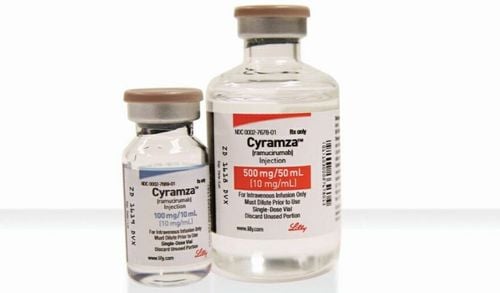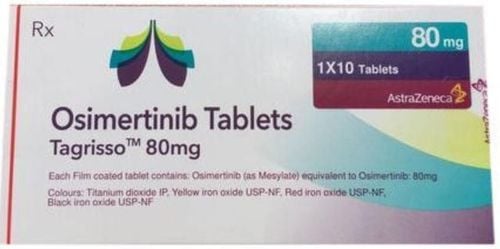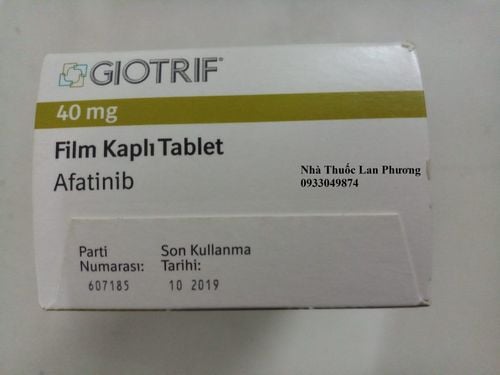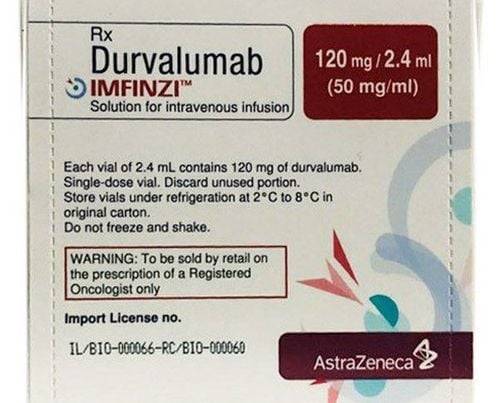This is an automatically translated article.
The article is expertly advised by Mr. Dr. Quach Thanh Dung - Internal Oncologist, Internal Oncology Department, Vinmec Times City International General Hospital.Targeted therapy is cancer therapy using drugs to limit the growth and spread of cancer, usually applied on patients with advanced stage cancer. , progression and distant metastases that local treatments such as surgery and radiotherapy cannot perform.
1. What is targeted therapy?
Targeted therapy is the foundation of precision medicine, is one of the important basic treatments in the treatment of multimodal cancer by targeting the growth, division and spread of cells. cancer cells. Targeted cancer therapy works by attacking and blocking specific genes or proteins that are found in cancer cells or cells involved in tumor growth. .
Up to now, the US Food and Drug Administration (FDA) has approved many targeted drugs in the treatment of many types of cancer, including common cancers such as: lung cancer , breast cancer , colorectal cancer , prostate cancer ...
Scientists are still studying more deeply about the mechanism of transformation from normal cells into cancer cells, thereby improving advance and increase the effectiveness of targeted therapies.
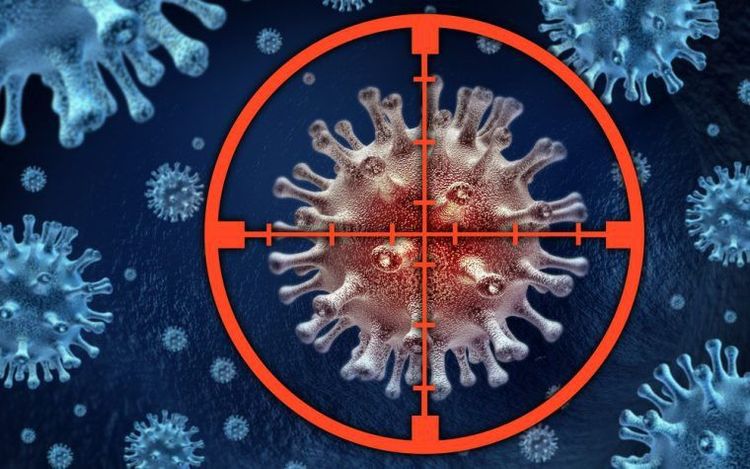
2. Types of targeted therapy
The two most common types of targeted therapy are small molecule drugs and monoclonal antibodies.
Small molecule drugs: are drugs that are small enough to enter the cell easily. Most are oral drugs Monoclonal antibodies: These are laboratory-produced proteins that can bind to a specific target in cancer cells. Some monoclonal antibodies can mark cancer cells, making it easier for the immune system to recognize and destroy cancer cells. Some monoclonal antibodies can directly stop cancer cells from growing, or cause them to self-destruct. Unlike small-molecule drugs, monoclonal antibodies are large, so they do not penetrate inside cells, but bind to specific targets on the surface of cancer cells. Most drugs are administered intravenously.
Trắc nghiệm: Thử hiểu biết của bạn về bệnh ung thư
Ung thư là nguyên nhân gây tử vong hàng thứ 2 trên thế giới. Thử sức cùng bài trắc nghiệm sau đây sẽ giúp bạn có thêm kiến thức về yếu tố nguy cơ cũng như cách phòng ngừa bệnh ung thư.
Bài dịch từ: webmd.com
3. Subjects using targeted therapy
Some cancers do not need to be targeted before treatment such as Bevacizumab (Avastin) to treat colorectal cancer, ovarian cancer, and cervical cancer. However, most cancers require tumor biopsies for immunohistochemistry or molecular biology to check the suitability of targeted therapy drugs. For example, small molecule drugs such as Erlotinib (Tarceva), Gefitinib (Iressa) for lung cancer with EGFR (+) mutations, and Cetuximab (Erbitux) are effective in treating advanced colon cancer. etiology when the patient does not have RAS, BRAF (wild type) mutations. Trastuzumab is only used in breast cancer patients with Her2 (+) receptors ...

4. Mechanism of action of targeted therapy
The mechanism of action of most targeted therapies is to interfere with specific proteins of cancer cells. Each type of targeted therapy has a different mechanism of action:
Help the immune system destroy cancer cells: cancer cells have the ability to hide from the body's immune system. Certain targeted therapies can recognize and attach to cancer cells, helping the immune system find and destroy these cells. Others help boost the immune system to fight cancer more effectively. Prevent cancer cells from growing: Healthy cells in the body usually only divide into new cells when they receive a strong signal when the body needs it. However, there are proteins on the surface of cells that change, causing cells to divide even without receiving signals from the body. Some targeted therapies interfere with and block these proteins, stopping cell division, reducing uncontrolled cancer growth. Inhibition of tumor angiogenesis: cancerous tumors are often rich in blood vessels. Targeted therapies inhibit angiogenesis, reduce and block blood flow to the tumor, thereby inhibiting tumor proliferation, shrinking tumor size. Transporting cytotoxic agents to cancer cells: Some monoclonal antibodies are conjugated with cytotoxic agents as chemotherapy drugs. Once the monoclonal antibody attaches to the surface of cancer cells, chemotherapy drugs kill the cancer cells. Non-target cells will not be affected. Kill cancer cells: Normal cells die when damaged or when the body no longer needs them. However, cancer cells avoid this rule. Therefore, several targeted methods are used to induce programmed cell death. Separate cancer cells from the hormones needed for their growth: Some cancers like breast cancer and prostate cancer are hormone-dependent growth cancers. Hormone therapy is also a type of targeted therapy that inhibits the body from secreting specific hormones, or prevents hormones from interacting with cells in the body, including cancer cells. Targeted drugs used in combination with chemotherapy, radiation therapy or can be used alone to increase the effectiveness of cancer treatment. During treatment, patients will be closely monitored for clinical signs, side effects of the drug, as well as regularly tested to monitor disease status and effectiveness of therapy.
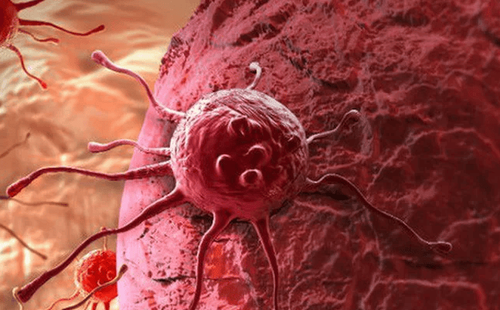
5. Limitations of Targeted Therapy
Besides the advantages, targeted therapy also has some limitations, including:
Cancer cells are resistant to drugs. Therefore, targeted therapy may be most effective when combined with each other or with other cancer treatments, such as chemotherapy or radiation. Some targets in cells have structural and functional changes that make it difficult for drugs to work.
6. Side effects of therapy
Targeted therapy can cause some side effects, depending on the drug and the body's response.
Diarrhea, fatigue, slow wound healing, high blood pressure, heart failure, dermatitis, mucositis, bleeding... In very rare cases, the walls of the esophagus, stomach, intestines can be perforated..
Management and close monitoring during treatment will minimize the above side effects. Most side effects resolve when the patient stops targeted therapy.
7. Monitoring the effectiveness of treatment
During the treatment process, the patient will be regularly examined and consulted by the doctor, checked for the effectiveness of treatment by blood tests, cancer markers, computed tomography, PET-CT...Center Radiation Oncology - Vinmec Times City International General Hospital is one of the cancer treatment centers in Vietnam that is fully equipped with modern diagnostic facilities such as: PET/CT, SPECT/CT, MRI ..., blood myelogram, histopathology, immunohistochemistry, gene test, molecular biology test. as well as a full range of targeted drugs, the most advanced immunotherapy drugs in cancer treatment. Multimodal cancer treatment from surgery, radiation therapy, chemotherapy, hematopoietic stem cell transplantation, targeted therapy, immunotherapy in cancer treatment, new treatments such as autoimmunotherapy body, heat therapy...
After having an accurate diagnosis of the disease and stage, the patient will be consulted to choose the most appropriate and effective treatment methods. The treatment process is always closely coordinated with many specialties: Diagnostic Imaging, Biochemistry, Immunology, Cardiology, Stem Cell and Gene Technology; Department of Obstetrics and Gynecology, Department of Endocrinology, Department of Rehabilitation, Department of Psychology, Department of Nutrition... to bring the highest efficiency and comfort to patients.

Please dial HOTLINE for more information or register for an appointment HERE. Download MyVinmec app to make appointments faster and to manage your bookings easily.
Articles refer to sources: Webmd.com, Cancer.gov
MORE:
What you need to know before deciding on cancer treatment Reproductive health care in female cancer patients Health care bones in cancer patients






